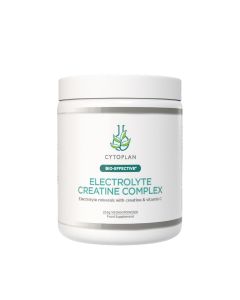There are two types of essential fatty acids: omega-3 and omega-6. The human body not only needs sufficient amounts of each, but also an optimal ratio between the two. Our modern diet, with high levels of sunflower oils, processed foods and low oily fish consumption, has unfortunately led to a dramatic alteration in the recommended omega-3 to omega-6 ratio. It is therefore often necessary to increase our intake of omega-3 fatty acids to regain the balance and reap their benefits.
Increasing intakes of omega-3 from dietary sources (e.g. oily fish) is often not convenient or desirable for many people, making essential fatty acid supplements the easiest and most direct source of the fatty acids EPA and DHA. Our fish oil products are made from the whole body of oily fish, which provides all the benefits without the potential disadvantage of any pollutants. The oil used in all our products is guaranteed clean, stable and free from heavy metals, PCBS and other contaminants.
So what are the benefits of omega-3? Well, EPA and DHA have been shown to contribute to brain function, normal vision, heart function, blood pressure, and the maintenance of blood triglyceride levels.
Here at Cytoplan we offer a wide range of omega-3 and omega-6 essential fatty acid supplements including high potency fish oil, krill oil and evening primrose oil. Whilst not deemed an essential fatty acid, within our range you will also find sea buckthorn oil which provides omega-7. For vegetarians and vegans, we also provide the omega-3 fatty acids EPA and DHA derived from plant marine algae. Our essential fatty acid supplements are available as capsules and liquids, providing something for everyone.
What are essential fatty acids?
Essential fatty acids (EFAs) are often referred to as "good fats", and are now becoming more prevalent within our diets as we become more aware of their benefits to health. Essential fatty acids is the term given as they are fundamental to health, but cannot be manufactured by the body and therefore must be obtained from the diet. Both omega-3 and omega-6 fatty acids are considered essential.
How many omega fatty acids are there?
There are four important dietary omega fatty acids; omega-3, omega-6, omega-9 and omega-7.
Omega-3
Omega-3 fatty acids are polyunsaturated fats; a type of fat your body can't make. They are referred to as "essential fats", meaning that you have to get them from your diet. The three main omega-3 fats are alpha-linolenic acid (ALA), eicosapentaenoic acid (EPA) and docosahexaenoic acid (DHA). Oily fish is the best source of the omega-3 fatty acids EPA and DHA. Other marine sources include algal oils. ALA is found mainly in nuts and seeds.
Omega-6
Like omega-3, omega-6 fatty acids are polyunsaturated fatty acids. Omega-6 fatty acids are also essential, so you need to obtain them from your diet. The two main omega-6 fats are linoleic acid (LA) and gamma linoleic acid (GLA). High levels of omega-6 fats are present in refined vegetable oils and foods cooked in vegetable oils. Nuts and seeds also contain significant amounts of omega-6 fatty acids.
Omega-9
Omega-9 fatty acids are monounsaturated. Oleic acid is the most common omega-9 fatty acid and the most common monounsaturated fatty acid in the diet. Omega-9 fatty acids aren't strictly "essential" as the body can produce them. Omega-9 fats are common in vegetable and seed oils, nuts and seeds.
Omega-7
Like omega-9, omega-7 is also a monounsaturated fat. It is not classed as an essential fatty acid as it can be made by the body. Palmitoleic acid is the most common omega-7 fatty acid. Food sources of omega-7 include macadamia nuts and oil, sea buckthorn oil, avocado oil and olive oil.
What are the benefits of omega-3?
Are essential fatty acids safe to take during pregnancy?
What is palmitoleic acid?







